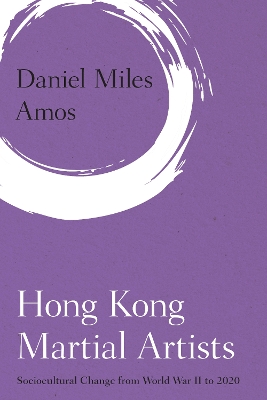Martial Arts Studies
1 total work
This imaginative and innovative study by Daniel M. Amos, a longtime scholar of Cantonese culture, examines Chinese martial arts and martial artists in Hong Kong over the span of four decades, from 1976 to 2019.
One of his earlier studies, based on ethnographic research completed between 1976 and 1981, compared Chinese martial artists in the British Crown Colony of Hong Kong with martial artists in neighboring Guangzhou, China, then emerging from the Cultural Revolution after the death of Mao Zedong. Over the past forty years Hong Kong has experienced the last two decades of British colonial rule and the first twenty years of governance by mainland China. Compared to the mid-1970s, Hong Kong is now much wealthier, while sports and leisure activities have become more closely tied to a world system where play and recreation have become increasingly internationalized. No longer are most Hong Kong Chinese martial artists who belong to private martial arts brotherhoods socially marginal people as they were in 1976. However, Chinese martial arts in Hong Kong has itself become marginalized in the sense that it is greatly reduced in popularity, with competition for the leisure time of children and youth coming from electronic media and games, a variety of sports, including mixed martial arts, boxing and other Asian martial arts.
One of his earlier studies, based on ethnographic research completed between 1976 and 1981, compared Chinese martial artists in the British Crown Colony of Hong Kong with martial artists in neighboring Guangzhou, China, then emerging from the Cultural Revolution after the death of Mao Zedong. Over the past forty years Hong Kong has experienced the last two decades of British colonial rule and the first twenty years of governance by mainland China. Compared to the mid-1970s, Hong Kong is now much wealthier, while sports and leisure activities have become more closely tied to a world system where play and recreation have become increasingly internationalized. No longer are most Hong Kong Chinese martial artists who belong to private martial arts brotherhoods socially marginal people as they were in 1976. However, Chinese martial arts in Hong Kong has itself become marginalized in the sense that it is greatly reduced in popularity, with competition for the leisure time of children and youth coming from electronic media and games, a variety of sports, including mixed martial arts, boxing and other Asian martial arts.
